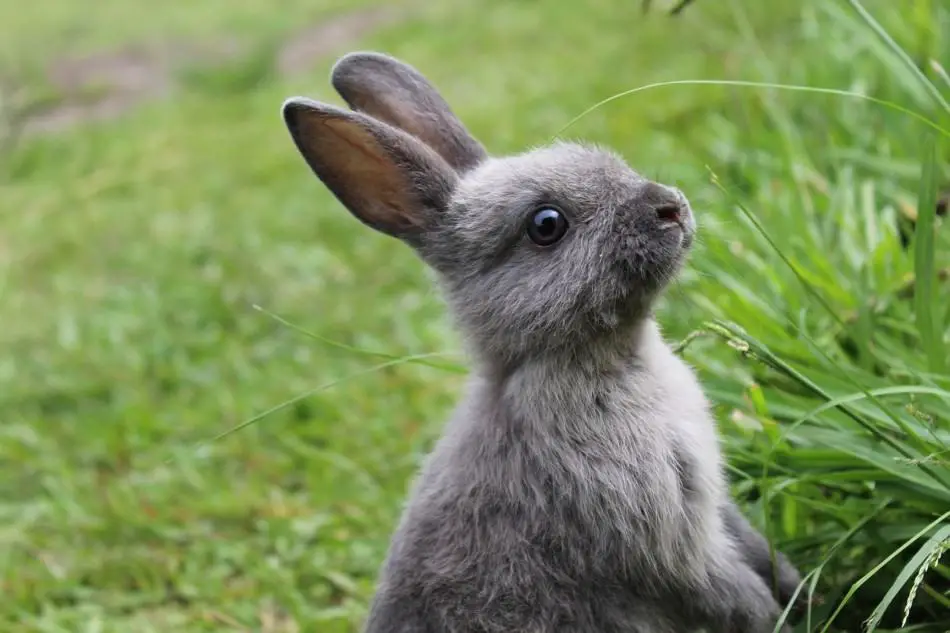If you’ve been thinking about having a rabbit as a pet, then you should go ahead. These animals aren’t just great in the wild, but they can also be domesticated. Although they are mostly known by their most distinguishing feature, which is their ears, rabbits also have very strong hind legs.
They can show different types of behavior that shows whether they are happy or not. The main question for most people remains, “do rabbits have good hearing?”. Understanding how different parts of the rabbit function will help you take good care of your rabbit pet. It also helps you understand pet behavior and, as such, notice any changes as soon as they arise.
Rabbits use not only the size and shape of their ears as a defense mechanism but also other senses to help them avoid predators. They are also predators themselves and can use their amazing hearing to find food.

Table of Contents
Rabbit Hearing
Rabbits are predators and, as such, have to rely on their different senses for survival. They have very sharp senses that enable them to detect predators from afar and get away to safety. Most of the time, rabbits that live in the wild have better senses, but even domesticated ones tend to continue with the same patterns. Although they use all their senses, their hearing is the most advanced.
Their large ears aren’t just for show, but they enable rabbits to hear movements from far. They have been proven to have better hearing than human beings and most of other wild and domestic animals.
With the ability to swivel their ears independently, rabbits can hear between the ranges of 360 to 42000 hertz. This range may reduce when they get used to living in a home where they feel safer, but even so, their hearing is still better than most of the other animal’s hearing.
The ability of the animals to turn their ears at 180-degree angles helps with their superior hearing, but it also allows them to pinpoint the exact origin of the sound.
The shape of the ears also plays an essential role in enhancing the hearing of the rabbit. Like satellites, the ears help them amplify sounds and distinguish the different types of sounds so they can differentiate the dangerous ones from the friendly ones.

Other Senses
The excellent hearing capacity of rabbits doesn’t stop them from using their other senses. They can still use their eye position to get a wider scope of their surroundings and detect predators before getting close.
The eyes on the side of the head make it easier for rabbits to feed or rest while still getting a wider vision. Rabbit’s sense of smell is also very active. That’s why they always seem to be twitching their noses while raising them up in the air. This sense isn’t just great for their safety; it also allows them to identify their food and their owners.
Once they get used to your smell, they can be comfortable around you and tell you apart from others.
These animals can also use their whiskers as tools to sense what’s within their reach. The hair on their body also makes them sensitive to touch. However, their sense of taste isn’t as advanced as others. They still use it to determine safe foods, but it’s not as active as other senses.
Other Functions Of The Ear
Being prey, rabbits are usually on alert, especially for the first few days they are at the house. Their alertness is part of survival tactics and it’s also why they don’t like being picked up. It may take a while for your pet rabbit to get used to your hands because they usually associate that movement with that of predator birds.
Rabbit’s ears are also part of the way they communicate. They use it to signal each other, especially when there’s danger looming. Although you may not be able to understand everything regarding how rabbits communicate with each other, you can learn some of the basics. For instance, when rabbits turns their ears backward, they are sensing danger.

They have most likely heard something or trying to listen to a sound behind them. If the ears are facing forward, then the rabbit could be showing that they are happy.
Rabbit’s ears also do more than sensing sounds. They also help in cooling off the rabbit. Unlike most domestic animals, rabbits can’t sweat, and they also can’t use other organs to release heat. When their body temperature rises, rabbits will raise their ears, which will have increased blood flow. This will allow them to catch a cool breeze that will cool the blood that will then be circulated back into the body.
The large ears increase the surface area that leads to faster cooling effect. Rabbits that have lop ears may not be able to cool themselves as effectively, which means that you have to be more attentive to then to help them when it gets too hot.
Different rabbit breeds have different levels of hearing adapted for their surroundings.
Tips For Caring For Your Rabbit
The fact that rabbits have excellent hearing doesn’t mean they should be neglected or that they don’t need proper care and affection. You still need to learn about your rabbit and how they behave under different circumstances, as well as making sure that they have a comfortable habitat. Make sure you give them enough space to jump around and stretch.
The height of the cage should be enough for the rabbit when it stands on its hind legs, while the length should also leave some space when the rabbit lies down and stretches fully. If possible, give then something they can dig and make sure the cage is appropriately covered to provide the rabbit with hiding spaces.

Even though a rabbit may learn to get along alone, it’s better to give them company. Rabbits like to socialize with other rabbits and tend to get very lonely when they don’t have that company.
Always feed your rabbit the right types of foods, We use Kaytee Pellets as the main source of food for our rabbits and add a variety of other fresh foods to give them a balanced diet.
Then try to make they’re surrounding suitable for their activities. For instance, you can add twigs, stumps, and other platforms they can climb. They may also like changing their scenery occasionally.
There are various fruits and vegetables that your rabbit will love. However, some of them are not suitable in large amounts and can make them sick. Be careful what you feed your rabbit.
Conclusion: Do Rabbits Have Good Hearing?
The answer to the question ‘do rabbits have a good hearing?’ is Yes, rabbits have good hearing. Their hearing is the most active and functional sense they have.
However, it would be best if you still tried to make their living conditions better. Always strive to understand your pet rabbit’s behavior to ensure they have good health. Remember that your rabbit may try to hide from you for the first few days when they are still not used to you. Be patient as you bond with them.



